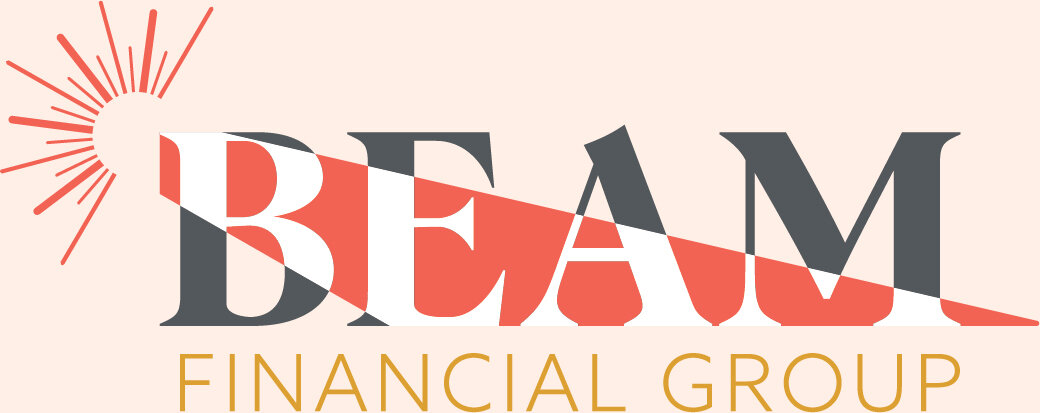Why Your Business Needs a Separate Bank Account
When you’re getting started as a new business owner typically you use the assets you have on hand. You function with the family computer (even though it does that weird thing where it shuts off randomly). You use your email address you created in the early 2000s (dexterfan12734@hotmail.com). And, yes, your personal bank account gets co-opted by your business needs.
Many solopreneurs can get by operating out of their personal accounts for a while. It can even feel like a convenience at times. But it isn’t a sustainable, long-term solution for a growing business.
Let’s dive into a few of the reasons why starting up a business bank account makes sense to do sooner rather than later.
Tax Season
If you’ve already made it through your first tax season with a personal bank account, you’ve likely encountered some of the issues around mixed accounts.
The difficult task of separating personal expenses from business expenses is tedious to say the least. It is an opportunity for missing out on tax deductions as well as an unnecessary expense as your accountant bills more hours for the work of sorting through everything.
When you’re already operating on tight margins, any area where you can save money is worth paying attention to. So don’t set yourself up for additional costs at tax season just because an organizational piece of the puzzle is missing.
Established Banking Relationship
Not very many of us sit around all day wishing for more facetime with a banker, but business owners tend to benefit from an interactive relationship with their banking institution. And when you set up a business account, you’re alerting your bank to the fact that you have a business in the first place and they are able to set you up with products to support that endeavor.
The checking account alone may come with some perks such as reduced or no withdrawal fees and advanced fraud protection. Furthermore, as you add assets to your business and need additional support (business credit cards, loans for retail space or automobiles, lines of credit for equipment, etc.) your ability to leverage that relationship to your benefit will deepen as well.
It’s hard for them to provide you with complimentary business products if they don’t know you’re a business.
Expansion
Trust that where you are at in business now isn’t how far you might go. One day you may want to incorporate a business partner, accept credit card transactions directly or even sell your business. The more intertwined your personal finances are with your business finances the more difficult it is going to be to grow.
Not only is a personal account limited in its offerings, but if you intend to ever pull back, step away or hire a staff, you don’t want your employees or investors to see all your personal records.
Clarity
When your account accurately represents what is going into your business and coming out, you’re going to get a much clearer picture regarding your margins and areas of opportunity. While some fine-tuned accounting and Quickbooks reporting will bring that into even more focus, being able to see where you are without any interference from your personal finances can be huge in making decisions.
You can start to get a feel for what your best times of year are. You can begin to see areas of opportunity where you might be able to hire an employee or two. You can catch problems or fraudulent activity easier when there’s less clutter.
The best thing you can do for yourself as a business owner is to have clear pictures around your money. It’s really easy to fall into the “there’s enough money in there for me to keep going” trap that justifies moves based on relative understandings rather than actual facts.
Professionalism
For the same reason you should have a branded email you should also have a branded checking account. Issuing checks or asking checks to be made out to you personally sends out a “beginner” vibe in a business transaction.
In the early days it’s your personal cell phone number, your home address, and your name that is front and center. But as you get established and really form this company into what it was destined to be, all your assets should reflect that level of professionalism.
Consider it a banking business card of sorts. It just adds another legit piece to the puzzle.
Legality and Liability
This will vary by industry, but there is always the potential you’ll open yourself up to legal troubles and unfortunate liability scenarios when you mix the personal and business aspects of your business.
It’s vital that when you start accepting money for your work you’re aware of any and all legal aspects of that transaction. You certainly don’t want to put yourself or your business at risk. And you don’t want an honest mistake to convert into expensive and concerning legal troubles.
You don’t have to become a legal expert, simply set yourself up right from the get-go with a business account that is likely to cushion some of the possible mishaps that could come up.
Part of getting a business account is also a mindset shift. It’s leaving behind that imposter syndrome and embracing that you aren’t just “side-hustling” or “profiting from a hobby.” You’re running a legitimate business that requires certain assets to support it.
Embrace the fact that you’ve gone beyond the bootstrapping phase. We understand that calling up the bank and moving your accounts can be a bit of a drag when you’re already busy, but it will most likely save you time, money and frustration in the future.

